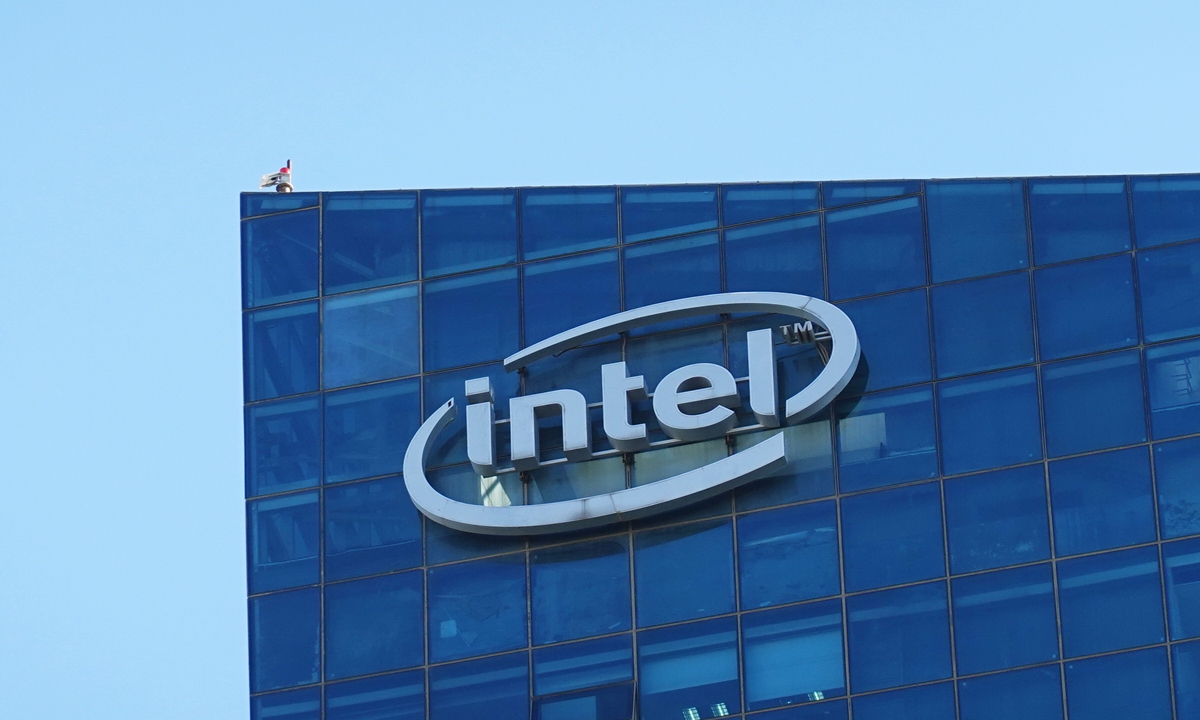
Intel Photo: VCG
Despite the impact of Washington's policies on foreign companies operating in China, American companies aren't being deterred from pursuing further development in the Chinese market. This phenomenon not only reflects the confidence and pragmatic approach of US businesses toward China, but also highlights the growing divide between these companies and Washington regarding China policy - an issue that is increasingly hard to overlook.
Intel announced on Monday an additional $300 million investment for the expansion of its packaging and testing facility in Chengdu, capital of Southwest China's Sichuan Province, Chinanews.com reported. In addition to existing packaging and testing services for client products, the facility will now also provide packaging and testing services for server chips, and a customer solutions center will be established to enhance the efficiency of the local supply chain.
While there may be concerns that Intel may be caught in the crossfire of the US-China rivalry, the tech giant's decision to bolster its investments in China underscores its emphasis on this critical market. From a business perspective, China stands as one of the largest consumers of semiconductors globally, boasting a vast user base and ever-expanding demand.
By increasing its investment in China, Intel is positioning itself to capitalize on the immense opportunities that this market presents while enhancing its competitive edge in the region, thereby securing a more advantageous position in the global semiconductor landscape.
However, if one puts the business decision in the context of China-US economic and trade relations, its deeper significance becomes apparent. The US has viewed China as a strategic competitor, particularly in the high-tech sector. In the field of semiconductor technology, the US has sought to curb China's technological progress through sanctions and export controls. This strategic suppression and containment undoubtedly present significant challenges and complexities for bilateral economic and trade relations.
In stark contrast to Washington's strategic perspective, US companies operating in China adopt a more pragmatic approach. They not only acknowledge the vast potential of the Chinese market but also see opportunities for mutual benefit through cooperation. For companies like Intel, China is not perceived as a potential adversary or threat, but rather as a market brimming with opportunities and competitive prospects. Consequently, these companies are more inclined to pursue advantages through competition, rather than viewing China as a rival to be suppressed, as Washington does.
Despite the numerous challenges and uncertainties currently confronting China-US economic and trade relations, the growing divide between American businesses' perceptions of China and Washington's policy direction underscores the irreplaceable role of market forces in shaping corporate decision-making. This rift is not an isolated phenomenon, as many other multinational companies' views on China are also different from Washington's.
Major players in the global semiconductor industry, such as ASML, South Korea's Samsung Electronics and Japan's Toshiba, have all demonstrated similar perceptions and attitudes when it comes to the Chinese market. They are well aware that the Chinese market is an indispensable part of the global supply chain. Therefore, even in the face of political pressure from the US, these companies are often reluctant to easily forfeit development opportunities in the Chinese market. For instance, ASML CEO Christophe Fouquet recently said much of ASML's business with China is focused on mature technology that is less relevant to national security concerns, Bloomberg reported.
If Washington continues to aggressively pursue its strategy to contain China, the divide between the perspectives of Washington and those of corporations on China-related issues is likely to widen further. As this dynamic unfolds, industries will increasingly recognize that cooperation with the Chinese market not only aligns with their economic interests but is also a crucial component of their broader global strategic framework. This evolving perception will inevitably influence Washington's China policy, as the voices of businesses advocating for engagement may grow louder.
Regardless of US strategy, China will continue to foster a more open, inclusive and transparent market environment, providing foreign companies with a stable and predictable business landscape and further strengthening and deepening cooperative relationships with global investors.



